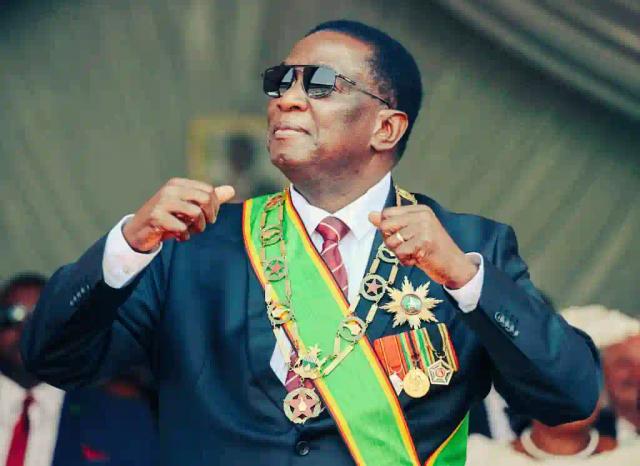Mnangagwa Hints At Strengthening The Zimbabwean Dollar

President Emmerson Mnangagwa, during his inauguration and swearing-in for his final term as Zimbabwe’s President, highlighted the significance of a national currency for development. While not explicitly mentioned, his remarks hinted at a preference for the Zimbabwean dollar as the sole currency. Additionally, he indicated a focus on utilizing internal resources to foster economic growth. The future of the United States dollar in the country’s currency system remains unclear. He said:
Comrades and Friends;
The past five years have delivered valuable lessons on our intricate economy, especially the fact that a national currency that is supported by a vibrant productive sector is indispensable to sustainable development. No country has ever developed without its own currency. Further, we can only develop and grow the economy based on our own internal resources.
FeedbackI urge us all to believe in ourselves and our abilities, as Zimbabweans and Africans. Development and national prosperity based on what we have is more sustainable and durable. We must take pride in who we are and what we can do for ourselves.
The numerous mineral resources in our country must be sustainably exploited to leap-frog our industrialisation and development. The lives of our citizens and the fortunes of our country as a whole must be improved. We expect nothing less.
Latest itel S24 (128GB) $124 (108MP camera)
Cash on Delivery in Harare & Bulawayo.
WhatsApp: 0783 450 793Our economy must realise maximum benefits from increased beneficiation and value addition. As such, my new Administration, through the Responsible Mining Initiative, will ensure greater stewardship over our finite natural resources. These must benefit both present and future generations.
During his speech, President Mnangagwa did not discuss the involvement of the African Development Bank (AfDB) in debt arrears or restructuring. Zimbabwe’s consolidated debt as of June 2023 amounted to $17.5 billion, with $14.04 billion owed to international creditors and $3.4 billion in domestic debt. The country is in arrears with multilateral development banks, including the AfDB. Finance Minister Mthuli Ncube said Zimbabwe aims to clear foreign debt by December 2025 to access new lines of credit for economic revitalization. The majority of the multilateral debt comprises arrears and penalties for non-payment.
Some context on Currencies:
Zimbabwe adopted a multi-currency system in 2009 as its national currency, the Zimbabwean dollar, faced hyperinflation and devaluation. The system allowed the use of foreign currencies such as the US dollar, South African rand, and Botswana pula as legal tender. While it provided some stability, challenges like limited access to smaller denominations and reliance on external economies emerged. In 2019, the Reserve Bank of Zimbabwe reintroduced the Zimbabwean dollar as the sole legal tender, discontinuing the use of foreign currencies for most transactions. However, the reintroduction has brought its own challenges, including inflation and currency instability. This forced the authorities to allow the use of the United States dollar together with the local currency albeit making it clear they would prefer having the Zimbabwe dollar as the sole legal tender.
Government critics including former Finance Minister Tendai Biti, argue that Zimbabwe should abandon the local currency due to its premature reintroduction without meeting the necessary prerequisites for sustainability. They propose using the US dollar as the sole legal tender until the prerequisites for reintroducing the Zimbabwean dollar are fulfilled. These critics believe that the public lost faith in the governance of the ZANU PF government, leading to a lack of confidence in the local currency, which they predict will continue to depreciate until governance issues are addressed.
More Pindula News
Tags
61 Comments
Leave a Comment
Generate a Whatsapp MessageBuy Phones on Credit.
More Deals





